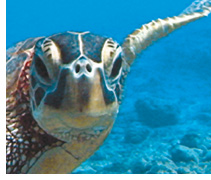THE OCEAN EDUCATION PROJECT
To Inform And Inspire
 DRAFT PROPOSAL FOR COMMENT
DRAFT PROPOSAL FOR COMMENTMISSION STATEMENT
The mission of the Ocean Education Project (OEP) is to raise public awareness and provide access to educational information about the importance of marine protected areas / marine reserves and their benefits, and to motivate individuals, industry stakeholders and legislators to take action to help protect our marine ecosystems.
INTRODUCTION
Marine ecosystems around the world are breaking down. Intensive coastal development, pollution and terrestrial runoff, watershed and wetlands degradation, along with over-fishing and harmful fishing practices are increasingly pressuring marine habitats and fisheries. Plant and animal species, which we depend upon for our very existence, are failing to replenish themselves at the same rate that they are being destroyed and exploited. And the incredible beauty and wonder of our planet's most precious resource is in danger of being lost forever.
Exhaustive studies conducted by the Pew Oceans Commission (www.pewoceans.org), the U.S. Commission on Ocean Policy (www.oceancommission.gov) and other independent scientific and environmental organizations (www.oceansalive.org) are in complete agreement: ocean resources are vital for our nation and must be protected immediately. In the words of U.S. Commission on Ocean Policy chair, Admiral James Watkins, USN (Ret.), "Reform of national ocean policy needs to start this year, while it is still possible to reverse distressing declines in marine resources, seize exciting opportunities, and sustain the oceans, coasts and their valuable assets for future generations. We cant wait another five or ten years to make changes or it will be too late." But what exactly should be done?
According to the findings of these distinguished Commissions, an important best way to protect and preserve our marine resources and "create a legacy in the oceans for future generations" is through the establishment of marine protected areas (MPAs) - what might be thought of as underwater national parks. Currently, however, the number of acres set aside for MPAs in U.S. coastal waters is a mere 1% of the area set aside for terrestrial national parks. Scientists, environmental leaders and even many fishing industry stakeholders are calling on U.S. policymakers to make the legislative and regulatory changes required to begin setting aside networks of marine reserves and to do so using an ecosystem based approach to the management of marine resources. These efforts combined with sustainable fisheries practices, such as the dedication of resource use priviledges, the banning of destructive fishing practices (i.e. dynamiting coral reefs) and requiring all fishing practices and gear to meet improved performance standards to reduce bycatch (the accidental killing of other marine species) and habitat damage, can turn the tide against escalating habitat and fisheries losses and preserve our ocean resources.
The debate surrounding the creation of MPAs and the governance of the oceans, the planet's last frontier, will be one of the most critical environmental public policy issues facing our nation over the next decade. The outcomes will affect us all. And because the creation of MPAs will require decisive action by local, state and federal legislators, an informed and vocal electorate will be crucial to the shaping of these decisions. The nature of this issue, then, makes it an ideal candidate for the kind of broad exposure and impactful outreach that media and media-based teaching tools can provide. There is, arguably, no better way to educate and engage the general public more quickly than through media-based public events and outreach programs, activities-based educational teaching tools, and public television programming. The need to inform the public and move people to take action has never been more pressing.